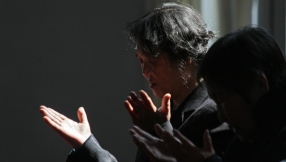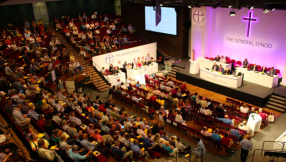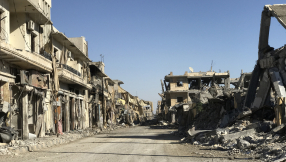UK guilty of 'hypocrisy' over Iran, says Church of Scotland Council
The Church of Scotland's annual General Assembly will meet in Edinburgh from 15 to 21 May.
The Church & Society Council said Iran was a concern because of its role as a key player in a number of regional political issues, including the conflict between Israel and the Palestinians and the future course of both Iraq and Afghanistan.
Although the Council views Iran's production of enriched uranium as a serious concern, the General Assembly will hear that the prospect of US military action against Iran, or a pre-emptive strike by Israel, are solutions that could prove worse than the original problem in terms of regional instability and loss of life in the Middle East.
Among the calls that are set to be made at the Assembly is an appeal for the British Government to make its opposition to the possible development of Iranian nuclear weapons "credible" by scrapping the nuclear weapons held by the UK. The renewal of the Trident weapons system is identified by the Kirk as being a breach of the Nuclear Non Proliferation Treaty (NPT), as well as an act of "gross hypocrisy".
"The...General Assembly has consistently opposed the proliferation of nuclear weapons and has called for nuclear disarmament. We do not believe that it is in the interests of the region for Iran, or any other state in the area, to develop a nuclear weapons capability," the Council's report to the Assembly states. "However, the position of the UK and US governments in particular is gravely weakened in relation to Iran when the UK seeks to renew Trident.
"We would argue that this failure to address their own plans for nuclear weapons expansion means that the UK and US governments are in a weak position to deal with Iran."
The Church & Society Council warns against a simplistic approach to Iran, and warns against viewing it merely as an "evil country with dangerous ambitions".
However, the Council does highlight the poor, and worsening, human rights record in Iran. Since 2005, there has been a dramatic increase in the use of the death penalty, from 94 in 2005, to 200 in 2006, and 300 in 2007. Currently, Iran is second only to China in the numbers of executions it carries out.
In addition, since the election of the conservative Mahmoud Ahmadinejad as President, relatively liberal newspapers have closed and a number of members of the press corps have been imprisoned - often for minor offences, the Council notes.
This crackdown has been felt in the foreign press, as well as the domestic. The last British journalist of an English-speaking newspaper, Robert Tait of The Guardian, was expelled from Iran in January of this year.
The Church & Society Council concludes that, domestically and internationally, Iran's future may lie not with negotiators in the West, or even its leadership, but with its people. Young Iranians make up an estimated 70 per cent of their country's population and many are frustrated with the way that the government is running their nation and are longing for change, the Council states.
Ending on a note of hope, the General Assembly will be asked: "Could it be that this young population in this ancient land may peacefully and constructively bring about the changes that Iran so desperately needs?"













